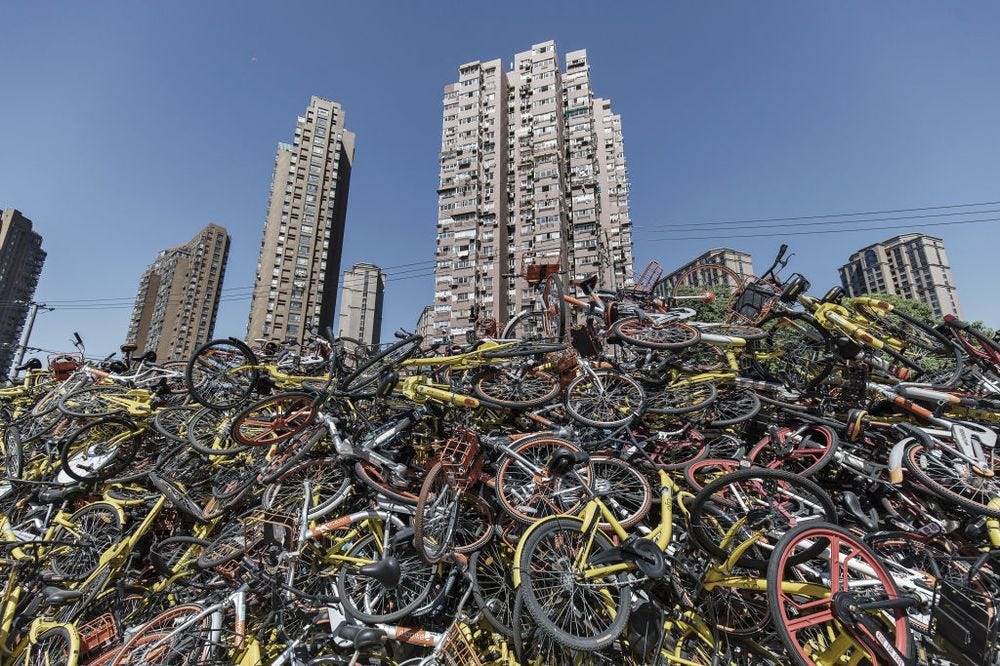By April Rinne – Apr 5 2020
Sharing forward: Where does the sharing economy go from here?
Having spent the past decade-plus trying to harness the original values and ethos of the sharing economy — community, sustainability, resourcefulness and trust, all of which we’ve never needed more than today — I believe there are three key trends underway that ultimately pave the way for a new, uplifting era for the sharing economy.
(1) Community-led sharing economies: The sharing economy will thrive when it is aligned with its original values. We will continue to see locally-based sharing networks for space, goods, food, services and so on. Think local co-working spaces, local carshare services, local time banks, local tool (or kitchen, sporting goods, etc.) libraries as well as mutual aid networks. Think bona fide homesharing — the sharing of excess space in one’s home — and social exchange. We will hopefully also see more cooperative ownership of firms and broader awareness of platform cooperatives.
The sharing economy will thrive when it is aligned with its original values.

Local sharing economies don’t shy away from money; we’re not talking barter, gifting and volunteerism only (though these activities are included). Rather, this is about focusing on actual sharing and the enhanced resourcefulness, resilience and relationships that naturally come along with such initiatives and business models. Think of it as a rebalancing of benefits: economic benefits are still there, but — finally! — they can only co-exist alongside social and environmental benefits. Think of this sharing economy not as transactional, but transformational: rather than global mega-platforms, a global network of local hubs, each its own sharing economy.
(2) Integrity: Finally, we will realize the slippery slope of terminology. We will learn to be careful with sharing economy language. We will hold ourselves and others accountable for their words, and we will call out instances of sharewashing enthusiastically. Does a BlaBlaCar shared ride among several people qualify? Yes. Does an Uber trip in a leased vehicle that wouldn’t be on the road otherwise? Absolutely not.
I find this reset to be especially exciting, because we’ve desperately needed it for a while. In many ways, the sharing economy has been a victim of its own success: “sharing” sounds so welcoming, who wouldn’t want to be part of it? And yet, by lumping so many clearly non-sharing activities under this umbrella, we’ve diluted its true meaning and power. It’s time to get that meaning and power back.
(3) A window of opportunity for policy makers: Back in 2012 I was among the earliest voices to call out the potential public-policy train wreck that the sharing economy represented. (Such articles now seem quaint, though telling.)

Advising policy makers around the world in the years since has been equal parts fascinating and depressing; no city, country or government has developed a truly future-forward policy strategy for the sharing economy, though many places have tried. COVID-19 may provide the catalyst to learn from those mistakes and craft better (if not best) practices, rules and norms.
The list of policy priorities is admittedly long, but COVID-19 puts many of them in stark relief. For example, until last month tourism powered more than 10% of global GDP, 10% of global jobs, and 20% of global new job creation. Overtourism seemed almost inevitable for an increasing number of places, underscoring a dangerous tension between short-term economic gains and long-term sustainability. We now have an extraordinary opportunity to re-set that balance, including the role that the sharing economy can play in promoting truly community-led tourism (which relates directly to the first trend above).
Analysis – This article will be a critical asset to my research as it not only offers insight to the sharing economy post COVID-19, but it also evaluates the fundamental building blocks that define the sharing economy in its truest form. The author offers a critical perspective on the term “sharing economy” and helps to decipher what that truly means, and how it can be revitalized on the principles that define it at its core. This article will help to guide my inquiry further down the path of how this unconventional economy can adapt with the evolving future, in a way that can reposition itself to serve global sustainability progress, community empowerment and economic advancement.




